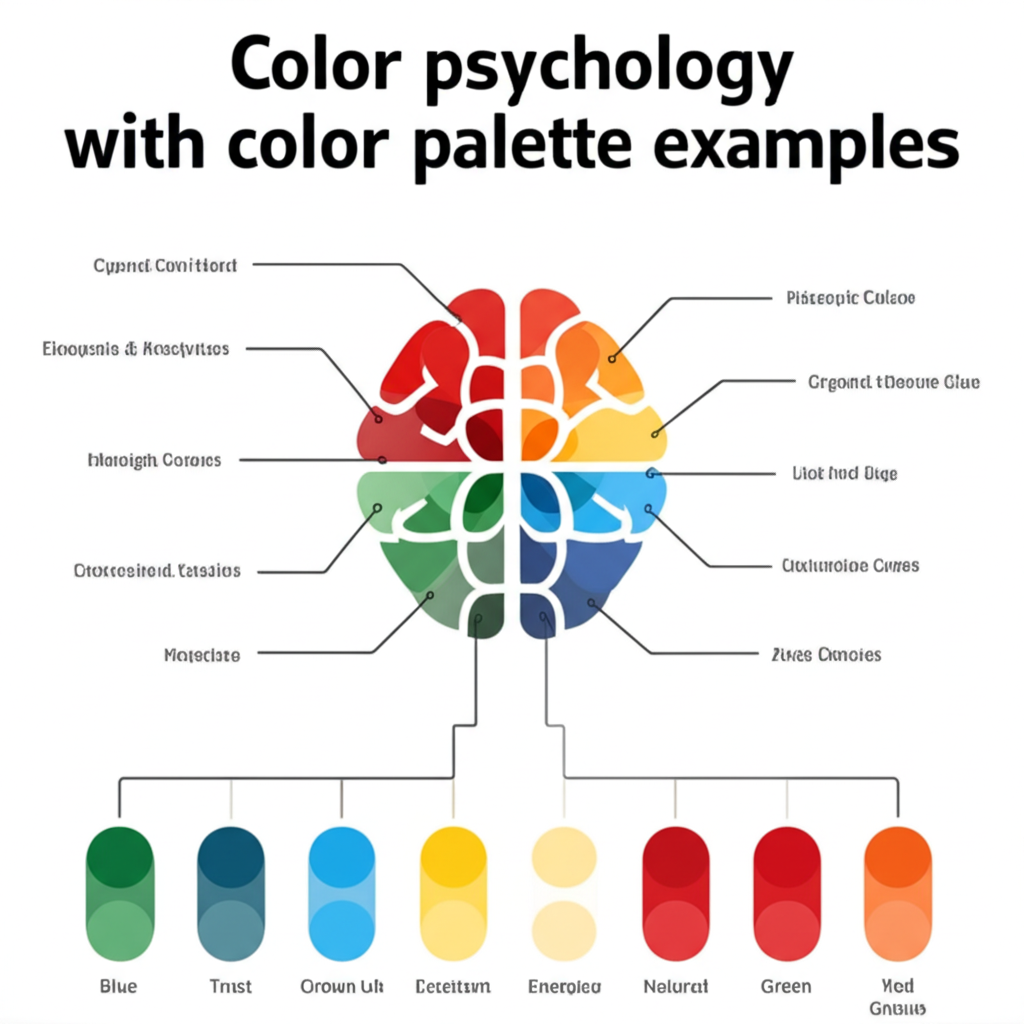The Psychology of Color in Web Design

Color is one of the most powerful tools in web design, capable of influencing emotions, guiding user behavior, and significantly impacting conversion rates. Understanding color psychology can transform your website from merely functional to truly persuasive.
The Power of Color
80%
Brand recognition increase
90%
Snap judgments based on color
24%
Conversion rate increase
How Color Affects the Brain
Colors trigger immediate psychological and physiological responses in humans. These reactions are both learned through cultural associations and hardwired into our biology.
When we see a color, our brain processes it in milliseconds, creating emotional responses that influence decision-making before we're even consciously aware of it.
The Science Behind Color Psychology:
- Colors can increase brand recognition by up to 80%
- 90% of snap judgments about products are based on color alone
- The right color can increase conversion rates by 24%
- Color improves comprehension by 73%
The Emotional Spectrum of Colors
Each color carries distinct emotional associations that can be leveraged to create specific user experiences and drive desired actions. Understanding these associations helps you choose colors that align with your brand message and business goals.
Red: Energy & Urgency
Creates excitement, urgency, and passion. Perfect for CTAs, sales, and food brands.
Blue: Trust & Professionalism
Conveys reliability, security, and competence. The most trusted color in business.
Green: Growth & Harmony
Represents nature, growth, and prosperity. Associated with positive action.
Orange: Enthusiasm & Creativity
Combines red's energy with yellow's happiness. Creates friendly, approachable feeling.
Purple: Luxury & Innovation
Associated with royalty, luxury, and creativity. Suggests premium quality.
Color and Conversion Optimization
Strategic color choices can significantly impact user behavior and conversion rates. The key is understanding your audience and aligning color psychology with your business goals.
Conversion Impact
A simple color change to a CTA button can increase conversions by 21%. HubSpot's red vs. green button test showed the red button outperformed green by 21%.
Call-to-Action Button Colors
Your CTA button color can make or break conversions. The most effective CTA colors create contrast with the surrounding design while evoking the desired emotional response.
High-Converting CTA Colors:
Creates urgency without aggression
Suggests "go" and positive action
Creates urgency for limited offers
Builds trust for financial actions
Testing Results:
HubSpot Test
Red button: +21% conversions vs. green
Performable Test
Red button: +21% conversions vs. green
Dmix Test
Orange button: +32.5% conversions
Practical Color Selection Tips
Choosing the right colors for your website requires balancing psychology, brand identity, and user experience considerations. Here's how to make strategic color decisions.
The 60-30-10 Rule
Use this classic design principle to create balanced, visually appealing color schemes:
Dominant Color
Backgrounds, large sections, neutral base
Secondary Color
Headers, sidebars, accent areas
Accent Color
CTAs, highlights, important elements
Accessibility Considerations
Ensure your color choices are accessible to all users, including those with color vision deficiencies. Maintain sufficient contrast ratios and don't rely solely on color to convey important information.
Ready for a Psychologically Optimized Website?
At BuiltIn24, we apply color psychology principles to create websites that not only look great but also drive conversions and support your business goals.
Test and Optimize
While color psychology provides valuable guidelines, the most effective approach is to test different color combinations with your specific audience. A/B test your CTAs, headers, and key elements to find what works best for your users.
Remember, the "best" color is the one that resonates with your audience and supports your business objectives. Use psychology as your starting point, then let data guide your final decisions.